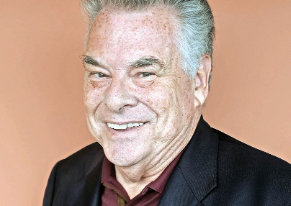We’ve had great people working for us at the U.N.
Every September, the annual opening of the United Nations General Assembly wreaks havoc, confusion and congestion for everyone who must travel to and from Manhattan. I was reminded of this when it took me a half-hour in mid-afternoon to drive the five and a half blocks from the FDR Drive’s 49th Street exit to a parking garage on 48th Street on my way to co-hosting “Cats and Cosby” at the WABC-AM studio.
Arriving at the studio, however, I received no sympathy or compassion from station employees, who told me about their experiences earlier in the day with endless gridlock or being unable to call an Uber or hail a taxi.
All of this made me think back on some of my experiences with the United Nations during my time in Congress and the question of the efficacy of this international body.
The General Assembly is a security nightmare for New York, as world leaders from far and wide descend on Manhattan. They include friends and foes; democratically elected leaders and tyrannical despots; serious players and dilettantes. It takes carefully coordinated efforts by all levels of law enforcement, including the FBI, the Secret Service and, most significantly, the NYPD, to provide the necessary security and transportation arrangements for all these leaders.
Not surprisingly, the one who generates the most attention is the president of the United States. I have been at General Assembly events for Presidents Clinton, Bush 43 and Trump. No matter how jaded you might become after years in politics and government, and no matter the president’s political party, it is always exhilarating to watch our president on the world stage.
She was a true foreign policy expert, and I distinctly recall her comparing the successful Irish peace process with the inability to get Balkan leaders to follow that example. My last in-depth meeting with Albright was on a visit to Sarajevo with Clinton in 2015, when we reminisced about bipartisan foreign policy efforts.
Albright was succeeded by New Mexico Congressman Bill Richardson, who had an international reputation as a hostage negotiator. I got to know Richardson well when we were in Congress together, particularly when we traveled to Ireland, Britain and Israel. Bill combined educational knowledge with solid street smarts to find ways to work through insoluble problems and achieve common-sense results.
My wife, Rosemary, and I have a great memory of when we and our daughter, Erin, had dinner with Bill and his wife, Barbara, at his ambassador’s residence in the Waldorf-Astoria. He went on to become governor of New Mexico, and then continued his work as a hostage negotiator until he died on Sept. 1.
Richard Holbrooke, a career diplomat who served as Clinton’s second-term U.N. ambassador, was a larger-than-life force who took no prisoners. I met Holbrooke when he was ambassador to Germany, and then he was assistant secretary of state for Europe, where I saw up close his efforts to resolve the wars in the Balkans, first in Bosnia and then in Kosovo. As a member of the Foreign Affairs Committee, I accompanied him to Sarajevo in 1996 to observe Bosnia’s first free elections.
Holbrooke brought the same energy and drive to the United Nations. He was later appointed special representative to Afghanistan and Pakistan by President Obama. Holbrooke died during heart surgery in 2010.
I have great regard for Trump’s first U.N. ambassador, Nikki Haley. A former governor of South Carolina, she was a tough, strong and articulate defender of the U.S. at the U.N., unafraid to face down America’s adversaries such as Russia and China. Haley was particularly effective in defending Israel, our strongest ally and the only real democracy in the Middle East, from hypocritical, biased resolutions. I visited her at her U.N. office with my family, and she couldn’t have been more gracious. Haley is currently running for president, and I wish her well. If elected, she would do an outstanding job.
Our presidents have appointed very able and dedicated Americans to represent us at the U.N. Unfortunately, while the U.N. has done effective humanitarian work, it has never fulfilled its potential as a force for peace because Russia and China have veto power, and have prevented meaningful action. Nonetheless, our ambassadors have used the U.N. as a forum for defending American values.
Peter King is a former congressman, and a former chair of the House Committee on Homeland Security. Comments? pking@liherald.com.






